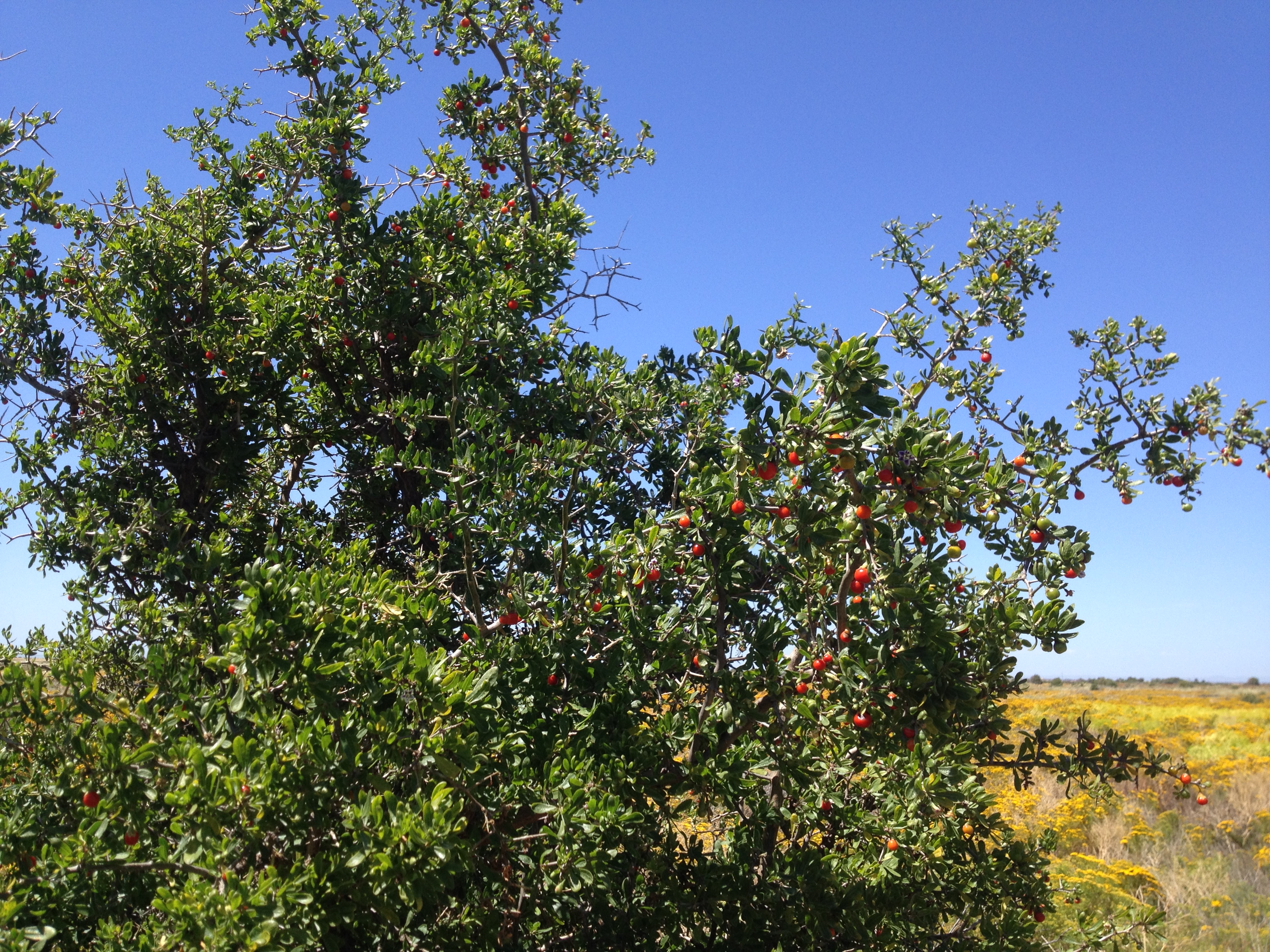
African boxthorn (photo courtesy of John Heap PIRSA)
African boxthorn (Lycium ferocissimum) is a widespread and significant environmental and agricultural weed in regional Australia, native to South Africa. It is difficult to control due to its establishment as dense, impenetrable and thorny thickets, presence across a broad range of landscapes and continued spread. Current physical and chemical control measures are considered to be quite destructive and therefore unsuitable in culturally valuable and ecologically sensitive areas, as this requires extensive planning and is unsustainable over large areas. Biological control offers promise as a control method as it is a safe, non-destructive, cost effective and sustainable method of control. The relative taxonomic isolation of African boxthorn to native Australian flora, together with its negative impact profile, makes the species a suitable target for biological control. Our research focuses on identifying which of the many natural enemies that attack African boxthorn in the native range of South Africa are the most appropriate candidate biological control agents for this weed.
This research on African boxthorn has been part of the projects ‘Biocontrol solutions for sustainable management of weed impacts to agricultural profitability’ (2016-2020) and ‘Underpinning agricultural productivity and biosecurity by weed biological control‘ (2019-2022), led by AgriFutures Australia (the trading name of the Rural Industries Research and Development Corporation (RIRDC)). These projects have been supported by funding from the Australian Government Department of Agriculture, Water and the Environment as part of its Rural R&D for Profit programme rounds 2 and 4, respectively. Biosecurity South Australia (Primary Industries and Regions South Australia), the Shire of Ravensthorpe, Western Australia, and the New South Wales Government through its Environmental Trust are also acknowledged for their financial support.
